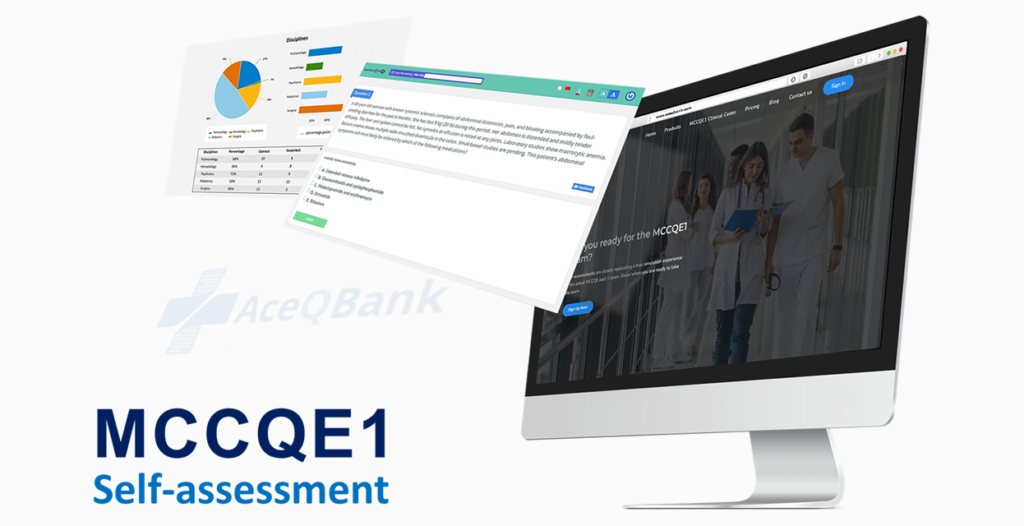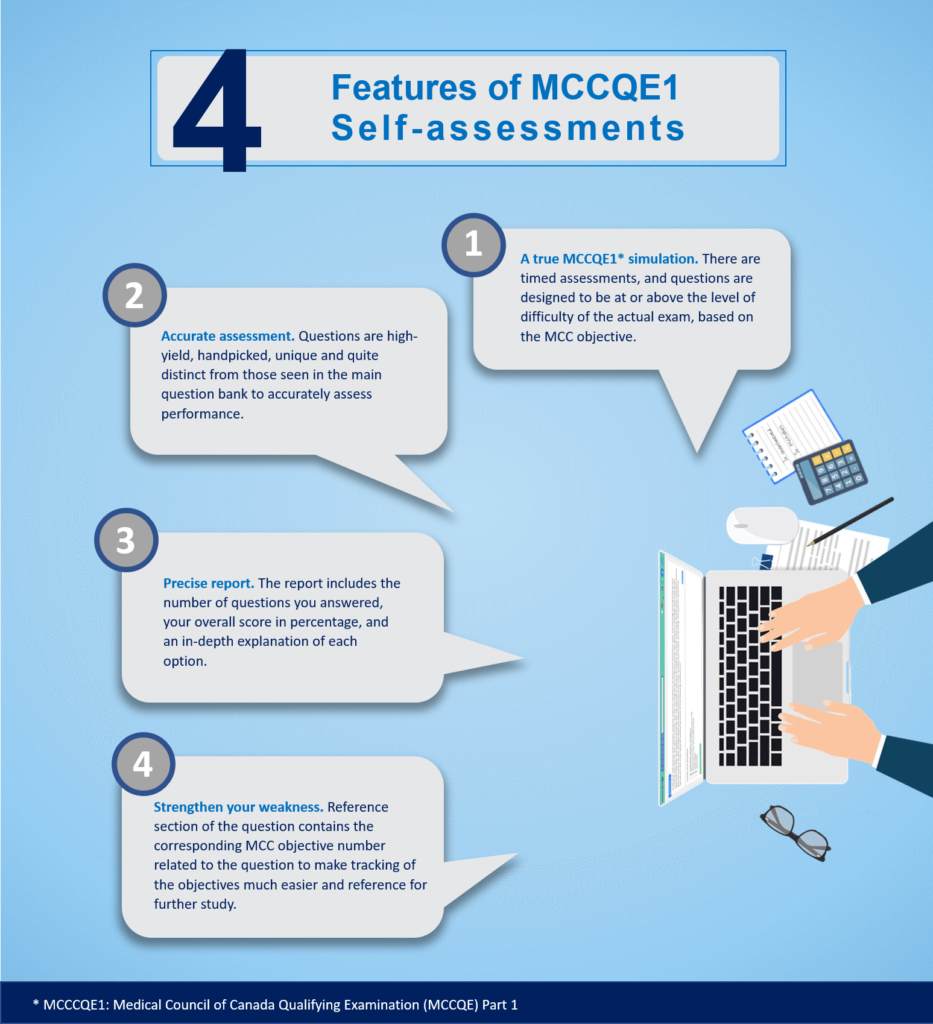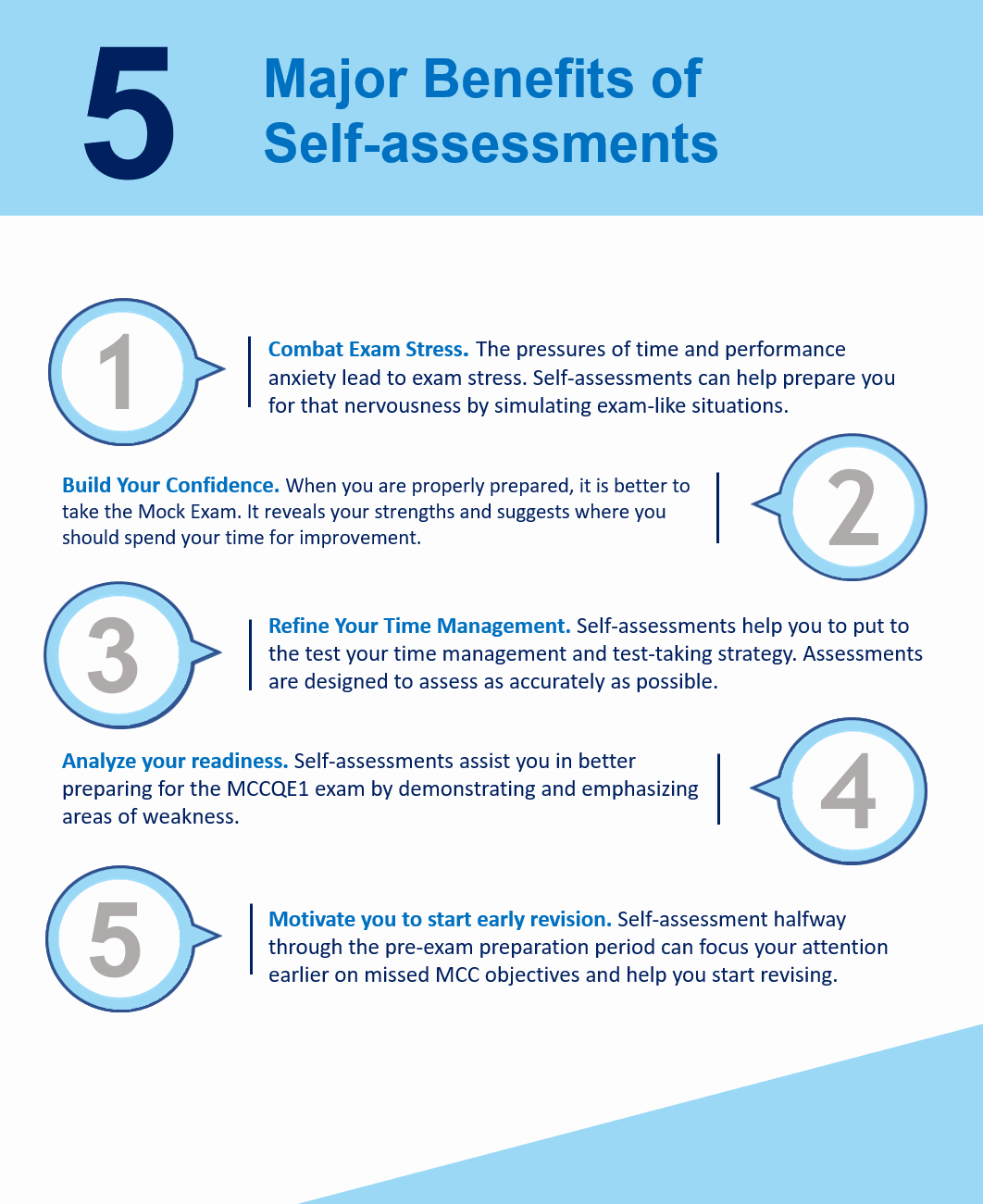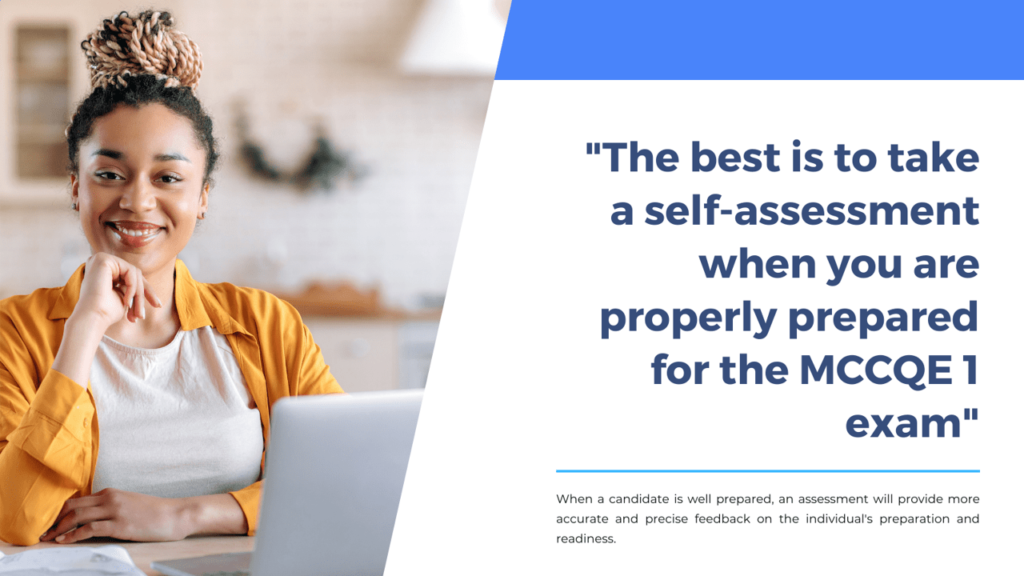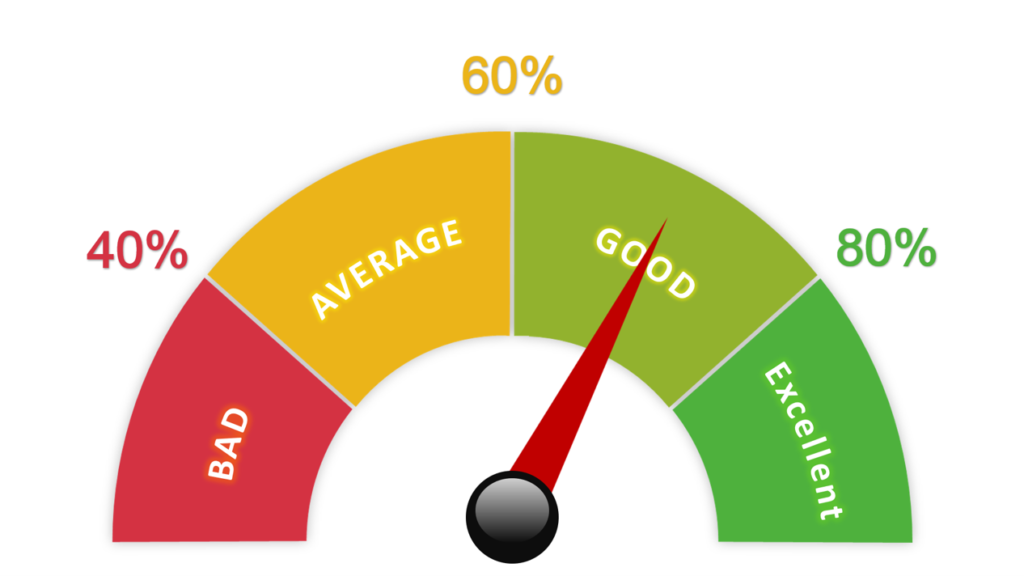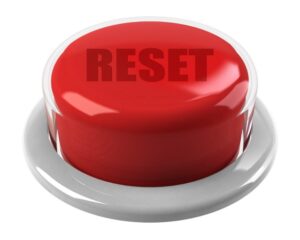MCCQE1 Self-Assessments
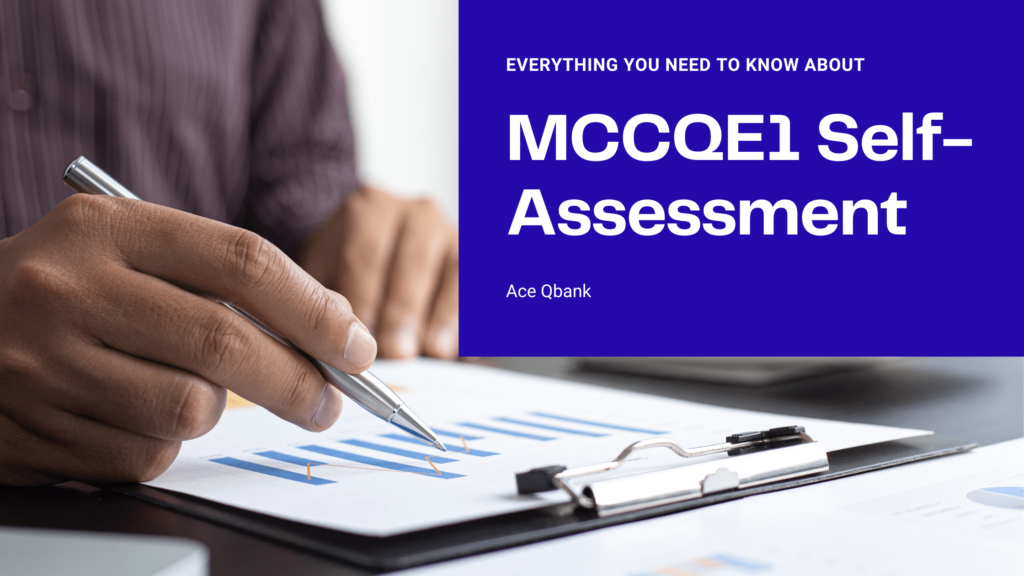
The Medical Council of Canada Qualifying Examination (MCCQE) Part 1 is a medical licensing examination that is offered in countries throughout the world. The MCCQE Part 1 assesses a physician’s ability to apply knowledge, concepts, and principles of medicine to solving the presented clinical problem. The MCCQE1 exam is one of two examinations that you must be passed in order to be recognized as a qualified physician and become eligible to apply for a residency program in Canada. The MCCQE part 1 exam is divided into two parts: the first has multiple-choice questions (MCQs), and the second is a series of clinical cases, and doing well in each component is vital for passing the examination.
It’s no secret that the MCCQE1 exam is challenging and requires proper preparation. To pass the exam, one must have a good understanding of the Medical Council of Canada (MCC) objectives; yet, knowledge is not the only determining element for success. Other crucial elements, such as time management, reading speed, and understanding, might provide a candidate with a distinct edge and boost the likelihood of success in such a competitive and challenging exam. Given the exam’s difficulty level and competitive nature, it is highly recommended to assess your preparation before sitting for the exam to minimize the risk and chance of failure.
Let’s imagine for a moment that the MCCQE1 exam day has finally arrived. It is time to take the plunge and take the exam. This can be a very stressful point in your life as a physician. Your peers will be getting their scores soon. You may feel overwhelmed. How will you pass if you can’t remember all of the terms, procedures, and steps of a condition? What if you had a better idea of what needs to be reviewed? What if you knew the material but had not had enough time to finish the exam?
The best way to evaluate your readiness for the exam is by taking the MCCQE1 self-assessment. Ace Qbank is the only Canadian question bank that offers several self-assessments for the MCCQE1 exam. Self-assessments are designed to help you better prepare for the exam by pinpointing your strengths and weaknesses in preparation and providing an overview of what you know, what you need to improve on, and what you should study next before the actual exam. Self-assessment is an excellent way to identify and focus on MCC objectives that are unfamiliar to you and strengthen those areas before the exam.
This blog post will discuss the importance of Ace Qbank’s self-assessments and the major benefits of assessment before the actual exam and will provide a much better overview of MCCQE1 self-assessments by answering common questions and providing explanations.
What Is An MCCQE1 Self-Assessment?
MCCQE1 self-assessments are a true simulation of the MCCQE1 exam that assists you in analyzing the effectiveness of your test-taking strategies, time management, and evaluating your shortcomings. It is imperative to note that the self-assessment is not a replacement for actual exam preparation; rather, it is an evaluation of MCCQE1 exam preparation and is the best way to properly identify those objectives that require more attention or immediate revision as well as any pertinent time management issues.
MCCQE1 self-assessment is an assessment designed based on the Medical Council of Canada (MCC) objectives and contains 120 handpicked by an expert physician to cover high-yield must-know MCC objectives in order to evaluate your readiness accurately. The assessment questions are at the same level of difficulty as the actual exam and cover the key essential concepts that you will be expected to remember on exam day. In addition, the assessments are timed but also record the amount of time you spend on each question so you can get a sense of how long it will take you to answer questions under exam conditions.
In general, self-assessments can provide individuals with a great deal of information about their own personal preparation for the MCCQE1 exam. The following are some specific pieces of information that can be gleaned from such assessments:
- The strengths and weaknesses in specific content areas
- Identify the test-taking strategies that work best
- Time management throughout the assessment
MCCQE1 Self-assessments provide you with the convenience of online assessment, rapid feedback, and the chance to evaluate your performance with explanations of correct and wrong answers after you submit the assessment. You will be able to identify your weaknesses and focus on the objectives that need more attention by reading the explanation. A thorough analysis of the self-assessment results – why the question was incorrectly answered – will, on the other hand, assist you in developing an effective strategy for the next few critical weeks or months leading up to exam day, allowing you to properly cover your shortcomings and improve your performance.
Why Is The MCCQE1 Self-Assessment Important?
Your journey towards becoming a licensed doctor in Canada involves many important steps, but one of the most important is successfully passing the MCCQE Part 1. This exam is a requirement for examination eligibility in Canada and is the biggest factor in determining which physicians are accepted into the Canadian residency program. To pass the MCCQE1, you must master MCC objectives, which are grouped into three domains: clinical skills, knowledge, and interpersonal and communication skills.
Whether you’re a recent grad or well experienced overseas physician, the MCCQE1 exam is no small feat. The MCCQE part 1 covers a broad range of topics, making it difficult to properly prepare, let alone determine how prepared you are for the exam, and you may constantly wonder if you will remember the key concepts, certain criteria, and the next step in the diagnostic ladder for the exam. The MCCQE Part 1 is a high-stakes exam that can impact your future career as a doctor in Canada; therefore, it is essential that you assess yourself before sitting for the exam. Ace Qbank provides MCCQE1 Self-assessments to help you assess your readiness for the exam.
The secret to successfully passing the exam is knowing what you forgot and need to review before sitting for the exam. The remarkable thing about the MCCQE1 self-assessments is that they pinpoint the objectives that demand urgent attention. The MCCQE1 self-assessment certainly can provide both comfort and confidence before the actual exam for you by fully assessing your preparation. The following are more reasons why you should assess your readiness:
1- A true simulation of the MCCQE1:
The self-assessment questions are 120 handpicked by an expert physician, based on the MCC objectives, timed, and are written in a very similar style to the MCCQE1 exam. Self-assessment questions are targeted at high-yield must-know MCC objectives and designed to be at or above the level of difficulty of the actual exam to assess your understanding of the key concepts.
2- Evaluation of MCCQE1 preparation:
The MCCQE1 self-assessment result can be a great help in assessing your preparation for the MCCQE1 exam. The assessment questions have been carefully selected to match the level of difficulty and style of the MCCQE1 exam and will challenge your time management and approach to each question type effectively. The final result is a comprehensive analysis of performance, from revealing how much time you spent answering each question to providing corresponding MCC objectives and an in-depth explanation of correct and incorrect answers. The result will show how well you covered the MCC objectives and how much additional study or practice you require in a certain area.
3- Battel MCCQE1 stress:
Exam stress is another compelling reason why one needs to take at least one MCCQE1 self-assessment before the actual exam. Exam stress is caused mainly by a true fear of failure and its negative impact on a medical career. It is fine to feel anxious before an exam, but anxiety becomes more intense when we study for a competitive and challenging exam. Exam stress can lead to losing sleep, making studying key concepts for the MCCQE1 exam difficult and, most significantly, preventing us from adequately resting before exams. This is mainly due to a tremendous amount of overwhelming pressure from negative thoughts generated and fueled by stress, which interferes with the person’s ability to concentrate and properly process information.
Exam stress can lead to losing sleep, making studying key concepts for the MCCQE1 exam difficult and, most significantly, preventing us from adequately resting before exams. This is because the candidate is under a tremendous amount of overwhelming pressure from negative thoughts generated and fueled by stress, which interferes with the person’s ability to concentrate and properly process information.
It is important that you understand how well you perform under pressure and under exam-like conditions. The MCCQE1 self-assessment can shed light on a problem(s) that will hinder success during the exam and provide insight into what to expect on the exam day, helping you set expectations and better prepare yourself. However, the next step is the key step which is to take the necessary time to properly work on the problems that have been identified and better manage them to ensure success on the MCCQE part 1.
4- Second chance before the MCCQE1 exam:
When it comes to preparing for the MCCQE Part 1, many students seem to think the key to success is simply doing as many practice questions as possible. While this is critical, it is not the only criteria that determine MCCQE1 exam success. In fact, evaluation of your preparation before the exam can boost your chances of passing the exam. The exam can be intimidating and stressful, but self-assessment is the key to success. This is especially true for the MCCQE1 exam. Those who assess their abilities and performance before taking the exam have a higher chance of passing because they have the opportunity to focus on their weaknesses, find a solution for problems discovered during the assessment, and work on improving or better managing them. You eliminate any surprises that could cost you time and test anxiety by assessing your readiness. Self-assessments help you to identify areas of weakness and edges of knowledge. By identifying these areas, you can strategize on how best to prepare for your exam.
Self-assessment will undoubtedly give you a better chance of success on the MCCQE part 1.
What Are The Benefits Of Taking The MCCQE1 Self-Assessment?
The key to successful preparation for the MCCQE1 exam is assessing what you already know and what you ee to know before it is too late. MCCQE1 Self-assessment is designed to demonstrate how effectively you have prepared yourself for the MCCQE1 exam, which is priceless for someone who is preparing for a competitive and challenging exam that determines a carrier future. Self-assessment has several benefits, such as helping you identify your strengths and weaknesses, gauge how well you understand the concepts and giving you a sense of your general performance under exam-like conditions. However, it is important to remember that self-assessments are just that – simulations of the actual exam. You should not expect to get a perfect score on your first try. Instead, use self-assessments as an opportunity to practice and improve your test-taking skills and time management.
Self-assessments are beneficial because they give you an idea of where you stand in terms of your readiness for the exam and provide an opportunity to better prepare for the exam. Here are a few benefits of MCCQE1 self-assessments:
1- Not Experiencing Severe Stress Prior to the MCCQE1 exam
Everyone is familiar with exam stress and the pressure of performing well on an exam. The worst part is that the more competitive and challenging the exam, the greater the pressure to perform well. To be honest, walking into an exam is nerve-racking for everyone. We have all been there – it’s a difficult situation. No matter how well you prepare, the pressure of scoring high and the thought of matching in your dream residency can knock you off your game. However, you should not get caught up in the moment and let the stress of the situation dictate your performance; otherwise, all the hard work and sacrifice that you have put in seems to go down the drain.
Ace Qbank’s MCCQE1 self-assessments closely resemble the real exam in terms of question style, format and difficulty. They provide a realistic simulation of the MCCQE1 exam experience when done under exam-like conditions. By having a practice run, self-assessments will give you a chance to develop ways to deal with stress and better manage the stress on exam day. This way, you will know what to expect and can train your mind to be calm and better manage your stress throughout the exam.
2- Improve Your MCCQE1 Exam Confidence
The MCCQE1 self-assessment is a true simulation of the exam that measures your ability to think critically, communicate clearly, and make decisions using clinical knowledge. The self-assessment is designed to assess the candidate’s ability to effectively perform in the role of a physician. When it comes to self-assessment, a lot of people are not very sure how to go about it. It is a common misconception that the results are NOT important and only meant to show which questions were answered wrong. This is not the case. Self-assessment should be seen as a way to better understand your strengths, weaknesses, and general performance. It is a chance to understand how you perform and how to improve your performance and chance of success in the MCCQE1 exam.
Before taking your assessment, it is important to prepare. The assessment result will reveal your true level of preparation and give you confidence. Without preparation, most self-assessments are rendered useless; not to mention, taking assessment questions without proper preparation is a waste of time and money.
3- Refine Your Time Management Before The MCCQE1
Time management is critical when answering multiple-choice questions. The common mistake is to spend too much time on the questions, either reading the question stem to find out clinical clues or spending too much time finding the best answer by eliminating answer choices. When you answer timed computer-based multiple-choice questions, there is an important time ratio, which suggests a 75 to 25 percent split for the allotted time per question. This is based on the human cognitive process. The brain is only capable of focusing on one task at a time, and it takes around 75% of the time allotted to read and process the question stem and 25% to select the correct answer. This rule of thumb is important for the MCCQE1 exam, and practicing it will help to read the question and then quickly eliminate answer choices that you know are wrong in less than a minute.
In order to be successful in the MCCQE1 exam, it is important to learn how to use your time as effectively as possible. Taking too long to answer one question will throw off your whole ratio, and the worst part is that you will not realize you are doing it until you take a timed exam. Self-assessment is an effective method for determining how efficient you are at managing your time. The self-assessment result will show how you spend your time, how you can improve your time management skills, and how to set priorities.
4- Analyze your readiness Before The MCCQE1 exam
There are many ways to prepare for the MCCQE1 exam, but not all of them are effective. Some people try to start preparing for the MCCQE1 exam without having a proper study plan and setting a specific date for the exam. They usually start with a lot of enthusiasm and then lose motivation midway through their preparation. This usually occurs because they are unsure of their test readiness and lack a clear understanding of what they must do in order to be adequately prepared. This is the worst possible strategy to implement during the MCCQE1 preparation.
The ideal strategy to prepare for the MCCQE1 is to first establish a specific date for the exam and start your preparation at least three months before that date. Second, create and stick to a study plan. Third, schedule a self-assessment to analyze your readiness, efficacy of preparation, and time management before sitting for the MCCQE1 exam.
Analyze the self-assessment results, use the information and work on areas that need your attention to boost your performance and increase your chance of success.
5- Motivate You To Start Early Revision Prior To The MCCQE1
One of the advantages of doing a self-assessment before taking the MCCQE1 exam is that you can see where you are currently at in your preparation. The primary purpose of these simulations is to give you a baseline against which you can measure your progress and identify all of the areas in which you need to improve. A good revision is essential for success in exams. Without revision, your new knowledge won’t sink in, and you won’t remember the material. Self-assessment helps you identify which objectives you need to focus on revising. The more you revise, the more connections your brain will form between different concepts, and the faster you will be able to recall information on exam day. On the other hand, thorough revision takes time, not to mention it can be confusing to know what to review or even where to begin if you have procrastinated in revision for a long time, which is why it can be difficult to motivate yourself to begin revising despite knowing the benefits, but the results of self-assessment will break down that barrier for you.
Is MCCQE1 Self-Assessment For Everyone?
Ace Qbank’s MCCQE1 self-assessments is a computer-based, multiple-choice assessment focusing on the essential areas of knowledge and skills needed to pass the MCCQE1 exam. The self-assessments are designed to help those studying for the MCCQE1 exam. Therefore, anyone preparing for the exam can subscribe to Ace Qbank and use the self-assessment.
The purpose MCCQE1 self-assessment is to allow you to test your knowledge and understanding of the key concepts and provide valuable insight into the effectiveness of the test-taking strategies and feedback on time management efficiency before the exam. Suppose you are a medical student who is preparing for MCCQE1. In that case, you should definitely subscribe to Ace Qbank and take advantage of the MCCQE1 self-assessment to assess your readiness for the exam to perform better for the MCCQE1 exam.
To sign up for the self-assessment, please visit our website, and you can also click here.
Where To Find the Self-assessment For The MCCQE1 Exam?
Ace Qbank is Canada’s number one question bank for the MCCQE1 preparation and the only Canadian question bank to offer self-assessments for the MCCQE part 1. MCCQE1 self-assessment simulates the test format and complexity as nearly as possible to offer exam day experience. This is a great way to assess your readiness and see where you need to improve your preparation.
Currently, Ace Qbank offers two self-assessments (Version 1 and Version 2), each of which has 120 high-yield questions with in-depth explanations, flow charts, summary points, summary tables, and colorful illustrations. Self-assessment can be activated at any time after purchase and can be accessed for two weeks.
To register for the self-assessment, go to the Ace Qbank website, and you can click here too.
When To Take Self-Assessment During Preparation For The MCCQE1?
When should I take the MCCQE1 self-assessment? This is a common query regarding the MCCQE1 self-assessment.
The best answer would not be in the last week of preparation. Taking an assessment for any test a week before the actual exam is a huge gamble, and that’s definitely not the best strategy when preparing for the MCCQE1 exam.
Self-assessment is a key component of any board exam preparation. It helps you to track your progress and identify areas that need improvement. When you’re taking an MCCQE1 self-assessment, it’s important to give yourself enough time to process and analyze the results of the self-assessment. This will assist you in identifying gaps in your knowledge and focusing on the objectives that need more attention. By doing this, you’ll be able to boost your performance on the actual exam.
However, it is essential to do a self-assessment at the appropriate time and in the appropriate way to obtain an accurate view of your performance and progress. Taking a self-assessment too soon will not provide you with an accurate picture of your progress; you may not have covered enough objectives to make an accurate assessment. You may be tempted to make assumptions based on your current level of knowledge or skills, but these assumptions may not be accurate. It’s better to wait until you’ve completed more than two-thirds of the question bank and covered the majority of the objectives. On the other hand, taking self-assessment too late even might have the opposite effect by increasing the level of stress. This is because you will feel like you are behind schedule and have lost the opportunity to achieve your goals. It is thus important to find the right timing for self-assessment.
The question bank has a built-in feature to help you realize the best time for taking the MCCQE1 self-assessment. This unique feature allows you to create question blocks from questions that were answered incorrectly in the course of study for the MCCQE1 exam. The number of wrong answer questions is an important indicator of how well you know the concepts. Suppose the total number of wrong answered questions increases; this is a tell-tale sign that you should NOT take a self-assessment. Simply, there is no point in taking an assessment when there is no firm grasp of the concepts that have been flagged by the question bank. Self-assessment should be taken when the total number of wrong answer questions decreases.
What MCCQE1 Self-Assessment Score Reveals?
The MCCQE1 self-assessment will include a score that reflects how well you have done on the assessment, gauge your readiness for the exam, and the extent to which you need to study more. The score is based on a scale of 1–100 and in percentage, where 100% represents the highest achievement level and excellent preparation. The assessment score is calculated by multiplying the number of multiple-choice questions you answered correctly by the percentage of questions in each section. The entire score is then divided by 100 to arrive at a percentage. The percentage distribution of self-assessment scores falls in the three major categories that will be discussed later on.
It is important to understand that the score you achieve on the self-assessment is only an estimate of your performance in the exam, and it does not predict what you will achieve on the actual exam. However, the assessment score can help you determine how prepared you are, get a detailed report of your strengths and weakness, and see which MCC objectives you need to focus on before it is too late. The score of the self-assessment falls into three major percentage distributions: high, average, and low. The following is an in-depth explanation of what each percentage distribution means:
1- Low (scoring less than 60%):
Low assessment scores are typically undesirable and suggest a major issue with MCCQE1 exam preparation. Many factors can contribute to the problem, but the most common causes are poor time management, lack of understanding of key concepts of the essential objectives and procrastination in revising the objectives. It is critical to understand that the assessment result simply indicates that there is a problem that must be resolved and managed successfully before taking the MCCQE1 exam.
As you review the questions you answered incorrectly, take time to read the question stem; if it still does not ring a bell and you are experiencing difficulties painting a complete clinical picture. In that case, you may need to review the MCC objectives to better understand the key concepts and clinical clues in common disease presentations. This will help improve your time management in the long run. It would be difficult for anyone to accurately answer a clinical question in a minute without having a full comprehension of common clinical presentations. This is because accurately diagnosing and treating a patient requires taking into account a variety of factors, including the patient’s symptoms and medical history. A person would need a good understanding of the topic in order to provide a comprehensive answer in a short amount of time.
2- Average (scoring 60-80%):
Average self-assessment scores typically fall between 60 and 80%. With persistence and patience, it is possible to see significant improvement in average scores before taking the MCCQE1 exam. There are, however, a few significant indicators that could suggest a possible problem. It may be an issue with your time management if you’re barely able to complete the self-assessment and are running out of time before submitting it. Alternatively, it could be due to procrastination in revising essential objectives.
Objectives reviews can play an important role in facilitating the learning process by providing a structure for organizing information and promoting its active recall. The more you review the objectives, the faster the recall of key information required to solve a presented clinical problem will be. It is best that you go through both of the questions you answered correctly – to find out why you spent too much time on the question- and incorrectly- to find out what you missed out on in the question stem. For example, if you missed a question on a particular topic, it might be helpful to go back and review the specific concepts that were covered in that question. In addition, make sure you practice taking timed tests so that you can get comfortable with the pacing of the exam.
Speed and efficiency are critical when reading questions on the MCCQE1 exam. You want to make sure you are not spending too much time on any one question, as this will eat into your overall time and could cause you to miss other questions. It is also important to be efficient in your reading in order to find clinical clues. When reading questions, keep two main points in mind on MCCQE part 1: first, pay attention to speed and efficiency, and second, know when to flag the question and move on instead of re-reading the question.
3- High (scoring above 80%):
A high self-assessment score is typically above 80%. A score of greater than 80% suggests that you have a decent test-taking strategy, outstanding time management, and have covered the important objectives well. Congratulations, you are prepared for the MCCQE1 exam! Although a score of 80% is good, the problem could be due to making a rookie mistake, rushing through the question stem, or missing a vital clue in the question stem. The best is to read the question answered incorrectly and figure out a reason for selecting the wrong answer. This will help you in avoiding making the same mistake in the future. Additionally, you should continue to revise your summary notes and review the MCC objectives. The revision is key to success in the MCCQE1 exam.
How many self-assessments should I take before the MCCQE1 exam?
The MCCQE1 self-assessment is the best way to gauge your readiness for the MCCQE1 exam, which is a challenging exam. The MCCQE1 is designed to be comprehensive and cover a range of medical subjects that demonstrate the competencies of a licensed professional. So, it is essential to be adequately prepared before taking it.
There is no clear consensus on how many self-assessments one should take before sitting for the MCCQE1 exam. Some say that taking as many as possible is the best way to ensure success, while others believe that too much self-assessment can actually lead to negative results and most people take just one self-assessment to evaluate and see where you stand. You probably think one self-assessment is enough to evaluate and see where you stand. But what if you were not properly prepared for the self-assessment? You could be making decisions based on inaccurate information, which could lead to poor results. That’s why some people take two self-assessments at different times to track their progress and adjust their strategies accordingly. This helps them stay on track, identify any knowledge gaps and work on them before sitting for the actual exam to achieve their goals more effectively.
Does the MCCQE1 self-assessment have rest options?
Ace Qbank self-assessments are a great resource to assess your readiness for the MCCQE1 exam. The assessments are true simulations of what you would see on the actual exam, and the questions range in difficulty to simulate what’s on the real exam.
Just like the actual exam, Ace Qbank self-assessments do not offer any reset options, so you can test your time management skills and test-taking skills.
The availability of the “reset” option for the self-assessment will ruin the simulation experience and defeat the whole purpose of this test. It is meant to simulate an actual exam environment and should not have an option to undo mistakes, as one may be tempted to do in a real exam.
Conclusion:
MCCQE1 self-assessments are an important part of the MCCQE1 exam preparation process. They are designed to help you to assess your strengths and weaknesses, and self-assessments give you a lot of sense of what to expect on the exam. Most people think that if they pass one of the self-assessments, they will surely pass the actual exam. This is not true. You need to analyze your results and figure out what you need to do to improve your chances of success in the MCCQE part 1 exam because the MCCQE1 self-assessment gives you an opportunity to cover properly, improve and better what is necessary before exam day, not the guarantee.
Need help with MCCQE1 Self-assessment:
Ace Qbank offers several MCCQE1 self-assessments to help you prepare for the MCCQE part 1 exam. These self-assessments can be extremely valuable when done correctly and can help you learn, adjust, and enhance your knowledge. The MCCQE1 self-assessment is not a pass/fail exam but rather a tool for providing constructive feedback on your preparation, which is why it is included in the premium package.
MCCQE1 Self-assessments are important in preparing for your MCCQE part 1 exams. By completing them before your exams, you can increase your chances of passing the exam on your first try. Don’t wait until the last minute to do them or treat them as an afterthought.

